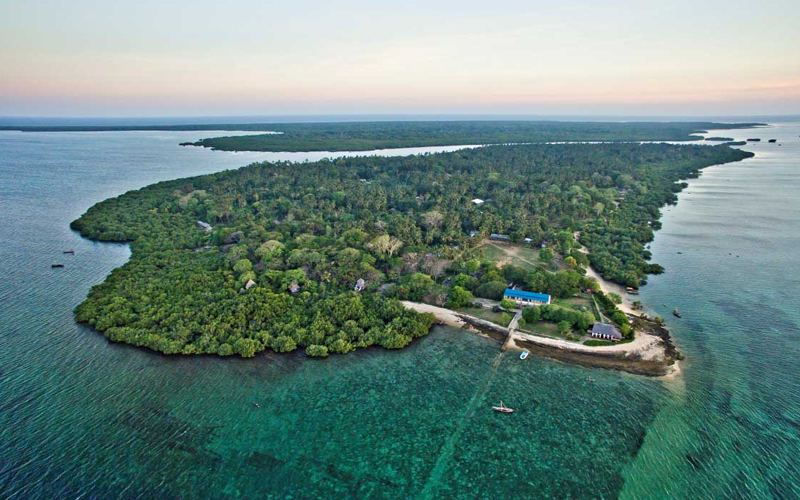Tanzania Marine Life Conservation Headlines 2024
In 2024, Tanzania’s marine life conservation efforts are making global headlines, as the country intensifies its initiatives to protect its rich and diverse marine ecosystems. With its stunning coastline, coral reefs, and marine biodiversity, Tanzania is home to some of the most important marine habitats in the Western Indian Ocean. However, like many other coastal regions around the world, Tanzania’s marine ecosystems face growing threats from overfishing, climate change, pollution, and habitat destruction. In response, the Tanzanian government, alongside local communities and international conservation organizations, has launched new measures aimed at safeguarding marine life for future generations.

Francisco Raymond
Tanzania Safari Specialist
Plan a memorable Tanzanian adventure?
Save time and ensure an incredible safari experience by getting quotes from our Tanzania safari and trekking specialist
Why Tanzania’s Marine Ecosystems Are So Important
Tanzania’s coastline stretches over 1,400 kilometers along the Indian Ocean and includes the islands of Zanzibar, Pemba, and Mafia. These waters are home to some of the world’s most diverse coral reefs, seagrass beds, mangroves, and marine species, making them essential for both ecological balance and the livelihoods of millions of people.
- Biodiversity Hotspot
Tanzania’s marine ecosystems support an extraordinary array of species, from colorful coral reefs to larger marine animals like dolphins, sea turtles, and whale sharks. The region’s coral reefs, particularly around the Mafia Island Marine Park, the Zanzibar Archipelago, and Mnemba Atoll, are considered biodiversity hotspots. These ecosystems not only attract tourists but also play a crucial role in supporting local fishing communities.
- Economic and Cultural Importance
The health of Tanzania’s marine environments is closely tied to the well-being of its coastal communities. Fishing is a major source of income for many Tanzanians, and the country’s thriving tourism industry—driven in part by its beautiful beaches and underwater attractions—depends on the preservation of its marine habitats. Coral reefs and mangroves also serve as natural barriers, protecting coastal areas from storms and erosion.
Key Conservation Efforts Making Waves in 2024
In response to the growing threats facing its marine ecosystems, Tanzania has implemented several ambitious conservation projects in 2024. These efforts focus on protecting critical habitats, promoting sustainable fishing practices, and raising awareness about the importance of marine conservation.
1. Expansion of Marine Protected Areas (MPAs)
One of the most significant developments in 2024 is Tanzania’s expansion of its Marine Protected Areas (MPAs). MPAs are designated regions where human activities, such as fishing, are regulated or restricted to protect biodiversity and promote the recovery of endangered species. In recent years, Tanzania has committed to increasing the size of its MPAs to cover 30% of its coastal waters by 2030, in line with global conservation goals.
New protected areas in key locations, including Mafia Island, Tanga, and Pemba, have been established, helping to safeguard critical coral reefs, seagrass beds, and mangroves. These ecosystems are vital for the survival of marine species and play a crucial role in carbon sequestration, which helps mitigate the effects of climate change.
2. Sustainable Fishing Initiatives
Overfishing is one of the biggest threats to Tanzania’s marine biodiversity, with local fish populations declining due to unsustainable practices such as blast fishing and the use of illegal fishing gear. In 2024, the Tanzanian government has ramped up its efforts to promote sustainable fishing, introducing stricter regulations and enforcement mechanisms to combat illegal practices.
Local communities are being encouraged to adopt sustainable fishing methods that allow fish populations to recover while ensuring that fishing remains a viable source of income. Training programs and community-led conservation initiatives are helping to empower local fishers to become stewards of the ocean, with a focus on balancing economic needs with long-term environmental sustainability.

Francisco Raymond
Tanzania Safari Specialist
Plan a memorable Tanzanian adventure?
Save time and ensure an incredible safari experience by getting quotes from our Tanzania safari and trekking specialist
3. Coral Reef Restoration Projects
Coral reefs are one of the most vulnerable ecosystems to the effects of climate change, particularly ocean warming and acidification. To combat coral bleaching and habitat degradation, Tanzania has launched several coral reef restoration projects in 2024. These projects involve growing coral fragments in nurseries before transplanting them to damaged reef areas to promote regrowth.
In Zanzibar, Mnemba Island, and the Mafia Island Marine Park, local conservation organizations and international NGOs are working together to restore coral reefs that have been impacted by rising sea temperatures. The use of innovative techniques, such as coral gardening and 3D-printed reef structures, is helping to create more resilient reefs that can withstand environmental changes.
4. Mangrove Reforestation and Protection
Mangroves are another critical habitat under threat from coastal development and climate change. These unique forests act as nurseries for many marine species, protect coastlines from storm surges, and store large amounts of carbon, making them important in the fight against global warming.
In 2024, Tanzania has made significant progress in its mangrove reforestation efforts, particularly along the Rufiji Delta and the coast of Pemba Island. These projects aim to restore degraded mangrove areas while preventing further destruction through stricter land-use regulations and community engagement. Local communities are being trained in mangrove planting and protection, ensuring that they play a central role in safeguarding these vital ecosystems.
The Role of Local Communities in Marine Conservation
Community-Based Conservation Initiatives
One of the key reasons Tanzania’s marine conservation efforts are gaining attention in 2024 is the strong involvement of local communities. Many of the country’s coastal conservation projects are based on a community-led approach, where local residents are actively involved in managing and protecting their natural resources. This approach ensures that conservation efforts are sustainable and aligned with the needs of the people who depend on the ocean for their livelihoods.
For example, in the Mafia Island Marine Park, local fishers work alongside conservationists to monitor fish populations, enforce sustainable fishing practices, and protect endangered species such as sea turtles. Community-led monitoring programs are also helping to identify and address threats to coral reefs and mangroves, ensuring that conservation efforts are based on local knowledge and expertise.
Education and Awareness Campaigns
Raising awareness about the importance of marine conservation is another critical aspect of Tanzania’s efforts in 2024. Education programs targeting schools, coastal communities, and tourists are helping to build a culture of conservation and encourage sustainable behaviors.
Local NGOs and environmental organizations are running campaigns that focus on the impacts of plastic pollution, overfishing, and climate change on Tanzania’s marine ecosystems. By empowering the next generation of Tanzanians with knowledge about the importance of ocean conservation, these programs aim to foster long-term stewardship of the country’s marine resources.
Impact of Tanzania’s Marine Conservation Efforts on Tourism
Boost to Eco-Tourism
Tanzania’s marine conservation efforts are also expected to have a positive impact on the country’s eco-tourism industry. As travelers become more conscious of their environmental impact, destinations that prioritize sustainability and conservation are becoming increasingly attractive.
In 2024, Tanzania’s eco-tourism offerings have expanded to include marine conservation tours, where visitors can learn about coral reef restoration, participate in beach cleanups, and support sea turtle conservation projects. These hands-on experiences not only allow tourists to contribute to conservation efforts but also provide an immersive way to explore Tanzania’s underwater world.
Sustainable Marine Tourism
In addition to eco-tourism, Tanzania is promoting sustainable marine tourism practices that minimize environmental damage. Diving and snorkeling operators are adopting strict guidelines to protect coral reefs, while boat tours are being regulated to reduce the impact on sensitive marine habitats.
Tourism plays a key role in Tanzania’s economy, and by promoting sustainable tourism practices, the country can ensure that its marine environments remain healthy and vibrant for both residents and visitors.

Francisco Raymond
Tanzania Safari Specialist
Plan a memorable Tanzanian adventure?
Save time and ensure an incredible safari experience by getting quotes from our Tanzania safari and trekking specialist
Challenges Facing Tanzania’s Marine Conservation Efforts
While Tanzania’s marine conservation initiatives are making significant progress, there are still several challenges to overcome. These include:
- Climate Change: Rising sea temperatures and ocean acidification continue to threaten coral reefs and marine ecosystems, making it difficult to ensure long-term resilience.
- Plastic Pollution: Despite increased awareness, plastic waste remains a major issue, with debris washing up on Tanzania’s beaches and polluting marine habitats.
- Funding and Resources: Conservation efforts require significant funding and resources, and while international support has been valuable, there is a need for more sustainable financial models to ensure the continued success of these initiatives.
Looking Ahead: The Future of Tanzania’s Marine Conservation
Tanzania’s marine conservation efforts in 2024 have set the stage for a brighter future for its coastal ecosystems. With expanded MPAs, community involvement, and innovative restoration projects, the country is taking a proactive approach to safeguarding its marine biodiversity. The combination of government action, local stewardship, and international collaboration provides a solid foundation for continued progress in the years to come.
As the world’s attention turns to ocean conservation, Tanzania’s efforts serve as a model for other countries facing similar challenges. By prioritizing sustainability, education, and community engagement, Tanzania is demonstrating that it is possible to balance economic development with environmental protection.
Tanzania’s marine life conservation efforts in 2024 are making headlines for all the right reasons. From expanding Marine Protected Areas to restoring coral reefs and mangroves, the country is taking bold steps to protect its rich marine biodiversity. With strong community involvement, innovative projects, and a focus on sustainability, Tanzania is not only preserving its marine ecosystems but also paving the way for a more sustainable and eco-friendly future. For travelers, conservationists, and local communities, these efforts represent a shared commitment to protecting the natural wonders of the Indian Ocean for generations to come.
FAQs
- What are Marine Protected Areas (MPAs) in Tanzania?
MPAs are regions of Tanzania’s coastal waters where activities like fishing and tourism are regulated to protect biodiversity and promote the recovery of endangered species. - How is Tanzania combating overfishing?
Tanzania is promoting sustainable fishing practices by introducing stricter regulations, encouraging community-led conservation efforts, and providing training to local fishers. - What is coral reef restoration in Tanzania?
Coral reef restoration involves growing coral fragments in nurseries and transplanting them to damaged reefs to promote regrowth and enhance resilience against environmental changes. - How are local communities involved in marine conservation?
Local communities play a key role in Tanzania’s marine conservation efforts, participating in monitoring programs, sustainable fishing practices, and education campaigns. - How can tourists support marine conservation in Tanzania?
Tourists can support marine conservation by participating in eco-tourism activities, following sustainable marine tourism guidelines, and supporting local conservation projects.
Explore the Richness of East Africa!
Visit our pages for detailed information on:
- Mto Wa Mbu Culture Tour
- Ngorongoro Conservation Area
- Ngorongoro Crater Day Trip
- Safari in Kenya
- Serengeti Great Wildebeest Migration
- Serengeti National Park
Discover the adventures that await you on our website!


